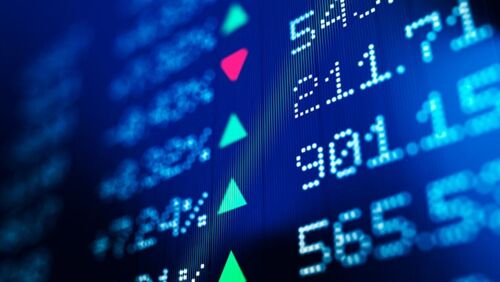Why I broke with tradition and bought ANZ shares
By Ross Greenwood
Last month I did an unusual thing (for me).
I bought some shares. I know that should be normal for someone who watches the sharemarket every day but I've discovered I do not have the time to be a constant trader.
The years have taught me that - as when buying property - every day is not a good day to climb on board.
And I know I have confessed this before, but I have also discovered that I am a better buyer of assets than a seller.
It doesn't matter if it's houses, apartments, cars or shares, I am better at spotting value to buy rather than an opportunity for selling. Which, I understand, is a fault. I tend to hang on to assets too long and I don't "recycle" them as often as I should (to borrow a term from modern political-speak).
But even I understood that when ANZ shares yielded 6.8% (before franking credits are taken into account) - compared with the 2.5% it would offer me on a deposit account or the 4.5% I could borrow at for a home loan - it was a great deal.
I understood the risks. As I see it - and others will see it differently - the risks are: 1. The bank cuts its dividend. I rate this a low risk. There is probably a better chance the dividend will be increased. 2. The bank will need to raise more capital. Again, a low risk as it has just finished a capital raising. 3. The shares fall.
Well, actually, I don't care about this, provided the dividend stays put or rises. And that's the trick of buying shares: identify the risks and work out if you can cope with them.
There is a chance, of course, that eventually interest rates will rise in Australia. This will push up the yield of all assets, including property and high-yielding shares, including the banks, Telstra, Medibank Private and others.
But even here I rationalise: if interest rates rise, it will be in response to better economic activity, which will have benefited bank profits and dividends. More likely than not, our interest rates will not rise for 18 months, perhaps longer, and so I have plenty of time to ponder my next move.
I will also say that I was poised to buy oil shares when the oil price hit $US38 a barrel but I missed my chance. Others didn't, and Woodside launched an $11 billion takeover bid (unaccepted at time of writing) for Papua New Guinea oil and gas player Oil Search (one of my preferred plays too).
I also keep watching shares in BHP Billiton but here the risks (to me) are less easy to rationalise. I understand that even if China grows at 6% (not the 7% originally forecast for next year) it will still be one of the fastest-growing major nations on Earth.
It will demand energy and food and services well into the future. (Which is why abandoning the free trade agreement is complete lunacy. As former ALP federal president Warren Mundine said, we are arguing about conditions on jobs that don't even exist yet.)
But to BHP. Since it decided on a "progressive" dividend policy (ie, to pay more of the profits to shareholders) it seems it has taken on an altogether different style: more farmer, less hunter.
As someone who has grown up used to BHP's dividend yield at 2% or less - because the board considered it could make good returns on the retained capital - I have been more than surprised to see its yield at more than 10% in recent weeks.
I have enjoyed buying BHP over the years during market lulls. Part of the reason is a quote, from a former BHP chief executive, that always stays with me: "You can replace a factory but you can't replace an ore body." In other words, a factory over time will depreciate or need replenishment.
And though commodity prices might make an ore body more or less profitable, you cannot always easily replace it with another.
So I go back to my basic risk assessment: could BHP cut its dividend? Sadly my view, right or wrong, is that it might in the future, especially if commodity prices remain weak. It might also need to preserve some capital in the future as well - to prevent a capital raising - which could see a change to that progressive dividend policy.
And all that could see its share price lower - even though I know its assets are of the highest quality. So the answer was a "no BHP" for now but with a watching brief. There will be a time (it might even be now, who knows, but the risks tipped my balance).
My fundamental long-term view is that a growing global population, from 7 billion to 9 billion people, will need more energy, more food and more minerals. It will also need better healthcare and financial services. This is the basis for my optimism for long-term investing.
As for the selling part of this equation: as I said, I know I'm not so good at that.
Get stories like this in our newsletters.


